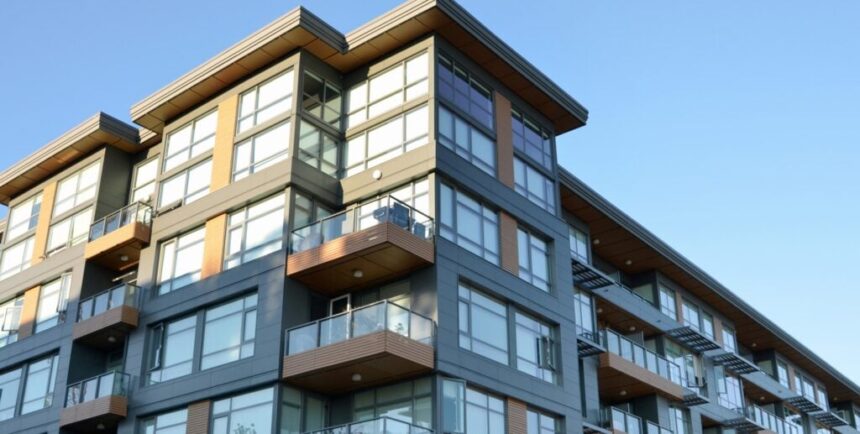Let’s stop talking about commercial real estate, which actually consists of over a dozen asset types, many of which are quite different.
Headlines like “The Biggest Crash Imaginable is Coming for Commercial Real Estate Assets” might apply to the office sector but not so much to self-storage or mobile home parks. In fact, it might apply to the office market in San Francisco but not office assets in Topeka, Kansas.
Furthermore, a crash could happen to office assets in Topeka, but only those acquired with high leverage—not those owned for cash or those acquired cheaply from mom-and-pop investors.
Do you see my point? Let’s not overgeneralize what’s happening as we consider our current or next investments.
Quick Note: I’ll be hosting the Commercial Real Estate Panel at the upcoming BiggerPockets Annual Conference in Orlando in mid-October. I’ll be joined by a distinguished panel of experts, including J Scott, Britt Arnason, AJ Osborne, and Tyler Cauble. (I won’t need to say a word!) I hope to see you there. Please come and say hello!
A perfect example is recent news on self-storage. Self-storage has been overbuilt in places like Charlotte, North Carolina; Nashville, Tennessee; and Denver. (Or has it? I’m generalizing again.).
But that doesn’t mean it is overbuilt in Ishpeming, Michigan, or Beeville, Texas, where we made significant investments in assets that have thrived in up-and-down economies.
And just because prices are dropping in Las Vegas doesn’t mean we didn’t do a storage deal. We are excited about it there (it helps that previous rents were only 41% of market price).
Just because the city of St. Louis has experienced population declines doesn’t mean the metro St. Louis self-storage asset we invested in at $33.45/square foot won’t be a wonderful asset (though nothing is guaranteed).
Deals Gone Sour
We’ve all heard the bad news about multifamily deals going wrong. I’m not talking about recent crowdfunding debacles, which is a separate issue, exposing a lack of corporate due diligence.
Often, the assets we say failed are not failures at all. The properties are still producing healthy cash flow. People still live in them, or there is stuff in them.
Yet some are foreclosed on and making headlines.
So what failed? The asset? Rarely. The deal? Close. It’s typically how the deal was purchased and financed.
Here are some types of deals that could have been rock stars with the right operator but will likely go bad:
- A syndicator who overpaid by 30% for a deal expecting rents to catch up (after all, rents in that city went up 18% a year for three years, and since people are coming from California, it’s logical that trend will continue—NOT!).
- A deal acquired with 80% floating-rate debt with a two-year term.
- Floating-rate debt with no rate cap (could sink most deals).
- Floating-rate debt with a rate cap that expires.
- Bad underwriting, such as assuming operating expenses would flatten while rents continued to rise. Unfortunately, the opposite has happened to some.
- Underutilized equity. Someone over-raised millions and planned to pay investors their returns from that raised money (with no disclosure). This is highly dilutive to the deal, and often, much of that capital must be used to fund interest rate caps and higher debt service.
Some of these have seen reserves go up 50x (that’s not a typo) or more. That’s devastating, especially since the projected rent increases did not materialize and operating expenses continued rising with inflation. And it hasn’t helped that insurance premiums and taxes have sometimes experienced record increases.
So, it’s not the asset classes that failed. Multifamily is still in high demand. And it’s not always the asset itself. Many are still performing well. It’s often the deal structure. And that is what you should watch out for.
This is why I’m still urging investors to perform robust due diligence before writing a check.
Speaking of Asset Types
I mentioned that we should stop talking about commercial real estate and start referring to specific asset types and assets. We could discuss over a dozen individual asset types. Here are a few:
- Multifamily
- Office
- Mobile home parks/RV parks
- Retail
- Light industrial
Many of these have many subtypes. Take retail. Malls are dying while open-air shopping is flying (but not all malls or all shopping are dying and flying).
So, what types of assets are most vulnerable? Office is an obvious one. Enough has been written about this; most BiggerPockets readers don’t invest in it anyway.
Hospitality also showed a lot of vulnerability during the COVID-19 pandemic, and it appears most BiggerPockets readers avoided that asset type as well. (I do have a friend crushing it in hotels, by the way.).
Let’s spend more time on several assets many BiggerPockets readers invest in.
Multifamily
Multifamily has seen increasing supply and demand. So why have I been so critical about this asset type I wrote a book on (The Perfect Investment)?
Multifamily is in massive demand. In fact, there is a 5.5 million-unit multifamily and single-family shortfall, according to the Wall Street Journal. Unlike in the office sector, people always need a place to live.
I am not arguing that means that every deal should flourish. My friend and BiggerPockets author, Brian Burke, explained this well on my podcast years ago. He believed that myth—until he bought a half-priced deal in 2008 that tanked. I love Brian’s transparency when he discusses this painful deal and how he emptied his own pockets to rescue it.
But I am saying that overall, the multifamily asset class (particularly affordable multifamily) has different fundamentals than office.
Office
In 2019, before the pandemic, who would have dreamed millions of square feet of office space would be abandoned within a year, with some shuttered permanently?
Even so, office may rebound. We don’t know when or how. And it’s being repurposed into multifamily in some cases.
But that would make an office investment a speculative endeavor and not for the faint of heart.
Mobile home parks
Let’s touch on the fundamentals of manufactured housing. Mobile home parks are the only asset type I know of, with increasing demand and decreasing supply every year.
Even if supply began to increase, which I think it could (especially with White House initiatives to expand affordable housing), we believe the demand will likely outpace supply for a very long time—perhaps for the rest of our lifetimes.
Consider the fact that more advanced designs and building techniques could allow for higher-quality manufactured housing. Some mobile homes I remember growing up have been replaced with modular homes. These are essentially factory-built homes designed to stick-built construction standards. They are increasingly making their way into manufactured housing communities.
I built six or seven modular homes a few decades years ago, and they are better now than then. The technology and standards continue to evolve.
Retail
Consider the dynamics of open-air shopping centers. The online revolution that would create a retail apocalypse has not materialized. Discount retailers are growing fast, filling spaces left by Tuesday Morning, Bed Bath & Beyond, and other retailers.
While online sales went from the upper teens to about 22% of retail during the COVID pandemic, online sales have proportionally dropped since. And a few months back, the Wall Street Journal touted retail strip centers as America’s hottest class.
Who would’ve guessed?
We’re happy to be investing in open-air shopping centers in our latest fund. I believe they are poised to continue performing well, but again, that is a generalization, and there are no guarantees.
Light industrial
Remember in 1993, when talk show hosts predicted NAFTA would destroy American industry and ravage employment in the industrial and logistics realm?
Well, there was truth in that. Unemployment in nearby Martinsville, Virginia, was over 20% after textile and furniture manufacturers fled.
But everything has a cycle, doesn’t it? Industrial, warehousing, and logistics assets are in high demand across the U.S. Some long-abandoned industrial facilities are getting new owners and new life. Others have been repurposed as multifamily, as you’ve undoubtedly witnessed.
I like investing in previously owned mom-and-pop industrial parks that need a professional operator to repave the parking lot, install modern landscaping, and dispose of hundreds of manila file folders (and the broken fax machine) all strewn across 1990s soiled carpet. You get the idea.
The Near and More Distant Future of Commercial Real Estate Pricing
I know I wasn’t supposed to discuss commercial real estate—it’s too general. But allowing for this general point of view, excluding office, I want to offer an opinion: Many market watchers, sometimes including me, have been predicting a significant drop in commercial real estate prices.
Inflation has receded but has certainly not given up the ghost. The Federal Reserve could continue to hike interest rates.
We may experience a recession, which is already being felt in some quarters. There is a lot of data supporting this thesis, and I won’t bore you (any more than I already have) by regurgitating it all here.
I will point out, however, that, just like generalizing ugly headlines and commercial real estate can be a mistake, a recession in some realms may not equate to a slump in every realm.
As mentioned, there is significant demand for multifamily and single-family housing. One in five Americans now use self-storage. Affordable housing (manufactured housing and affordable apartments) is in high demand. Light industrial parks are mostly full. Discount retail is expanding, filling up open-air shopping centers.
Again, it’s often the deal structures that are failing, not usually the assets themselves.
So, while hundreds of billions in sidelined cash is champing at the bit for bargain-basement prices in these asset types, I’ll theorize that this might not materialize on a broad scale. And the best deals may be scooped up by big players.
Of course, there will be discounts, such as on some multifamily deals that have already bitten the dust.
But a prominent multifamily syndicator told me a story yesterday: He sold several deals in 2021 and 2022 at inflated prices. The broker on at least two contacted him to repurchase them just for the debt payoff (they had already surrendered the equity). He said they didn’t nearly pencil out at that level (due to disappointing NOI, plus cap rate decompression).
By the way, there will be many more of these in the next year or two as floating-rate debt continues to put the crunch on the operator, and their loans need to be refinanced. A recent AI analysis of five Sun Belt cities highlighted 300 multifamily owners with 126,000 units facing significant refinancing challenges in the next few years.
Another trend we’re seeing is lenders doing workouts (extending grace and relaxed terms) on distressed deals. This is quite different from 2008, which could add to the theory of a soft landing and less available distressed assets.
I’m guessing someone will snatch up many of these deals before they return to the bank. Or if they go back to the lender, I predict they won’t come out at half-price or less, as we saw during the Great Financial Crisis. There will obviously be exceptions.
So, while we may see a significant decrease in the prices of individual assets, we may not see this across the board like we did in 2008 and beyond. (Another case for not generalizing, which seems to be a theme here.)
Why am I saying all this? Why do I sound like I’m making predictions? Partly because I want to point out that the strategies top-performing syndicators have used for the last decade or two will probably still be on point in the coming years. While a newbie operator with access to capital could crush it a decade ago, it may take more skill and experience this time around.
So what does that mean for me? It means that poorly or undermanaged, underperforming assets from mom-and-pop sellers will still be my favorite investment strategy. These types of typically value-add assets should perform well in any economy.
And I want to add that Warren Buffett and Charlie Munger employ a similar mindset in every economy. Buffett said in a 2019 interview:
“Charlie Munger—my partner—and I, in 54 years now, never made a decision based on an economic prediction. We make predictions about what individual businesses will do over time, and we compare that to what we pay for them. But we have never said yes to something because we thought the economy was gonna do well in the next year or two years.”
Looking to the Future
Though I shouldn’t make predictions, I want to point out that Warren Buffett’s Berkshire Hathaway recently increased its stake in three national homebuilders. What does that mean for real estate investors?
I think Buffett’s thoughts are similar to what I’ve shared. I’m guessing he’s considering the massive shortfall in single-family and multifamily units as he makes these investments.
The supply of newly built multifamily and single-family housing will likely slow down dramatically in this current environment of rising interest rates and economic uncertainty. As a result, the supply-and-demand imbalance in these arenas will be exacerbated in the next several years. I wouldn’t be surprised if the same doesn’t happen in self-storage and other asset types.
Why is this important? Because it reminds us that now could be an excellent time to invest in these asset types—especially when planning to hold for a long time (I prefer a decade).
Lest you think I sound like I’m peddling used cars, I’ll remind you that Warren Buffett, Howard Marks, and others believe the best deals are made during the worst of times and the worst deals are made during the best of times.
While we don’t think this will be the worst of times, I will say that multifamily and other similar asset classes did so well in the last decade because of the shortfall in affordable housing that bloomed during the Great Financial Crisis.
Multifamily and single-family new builds screeched to a crawl in the downturn. And the shortfall we see now is part of the result.
Suppose building slows down in the next several years (which it already has due to higher interest rates and tightened lending). In that case, we will likely see a more robust supply-and-demand imbalance in future years and, therefore, potentially stronger performance in these asset types.
And Buffett is undoubtedly looking at the long term, as he always does. Since he just turned 93 in August, he probably won’t be alive in a decade. But Berkshire Hathaway will still be going strong.
As we consider the way forward, we should all be wary of anyone (even if it’s me) who claims to have it all figured out. Or anyone who tells you it’s OK to overpay for any investment. Or anybody who tells you to presume on the future and over-leverage.
I know some of you have experienced capital calls and distribution slowdowns in recent months, and I am sincerely sorry. I’m not making light of the difficulties you’re facing. But I am using this opportunity to encourage everyone to perform significant due diligence on anyone you invest your hard-earned capital with—this year, this decade, or ever.
Ready to succeed in real estate investing? Create a free BiggerPockets account to learn about investment strategies; ask questions and get answers from our community of +2 million members; connect with investor-friendly agents; and so much more.
*Mr. Moore is the co-founder and partner of The Wellings Real Estate Income Fund, which is available to accredited investors. Investors should consider the investment objectives, risks, charges, and expenses before investing. For a Private Placement Memorandum (“PPM”) with this and other information about the Wellings Real Estate Income Fund, please call 800-844-2188 or email [email protected]. Read the PPM carefully before investing. Past performance is no guarantee of future results. The information contained in this communication is for information purposes, does not constitute a recommendation, and should not be regarded as an offer to sell or a solicitation of an offer to buy any security in any jurisdiction where such an offer or solicitation would be in violation of any local laws. All investing involves the risk of loss, including a loss of principal. We do not provide tax, accounting, or legal advice, and all investors are advised to consult with their tax, accounting, or legal advisers before investing.
Note By BiggerPockets: These are opinions written by the author and do not necessarily represent the opinions of BiggerPockets.









